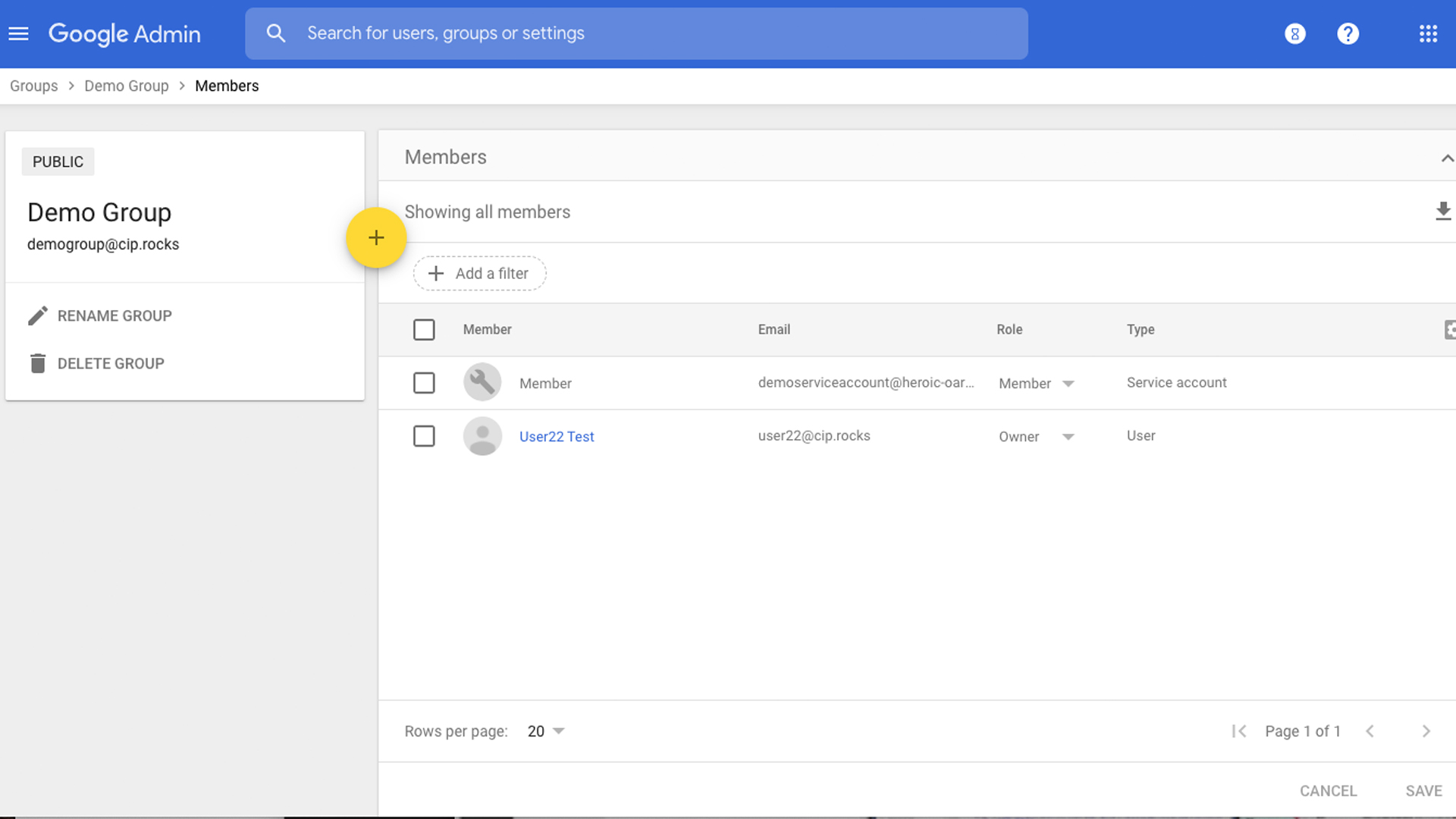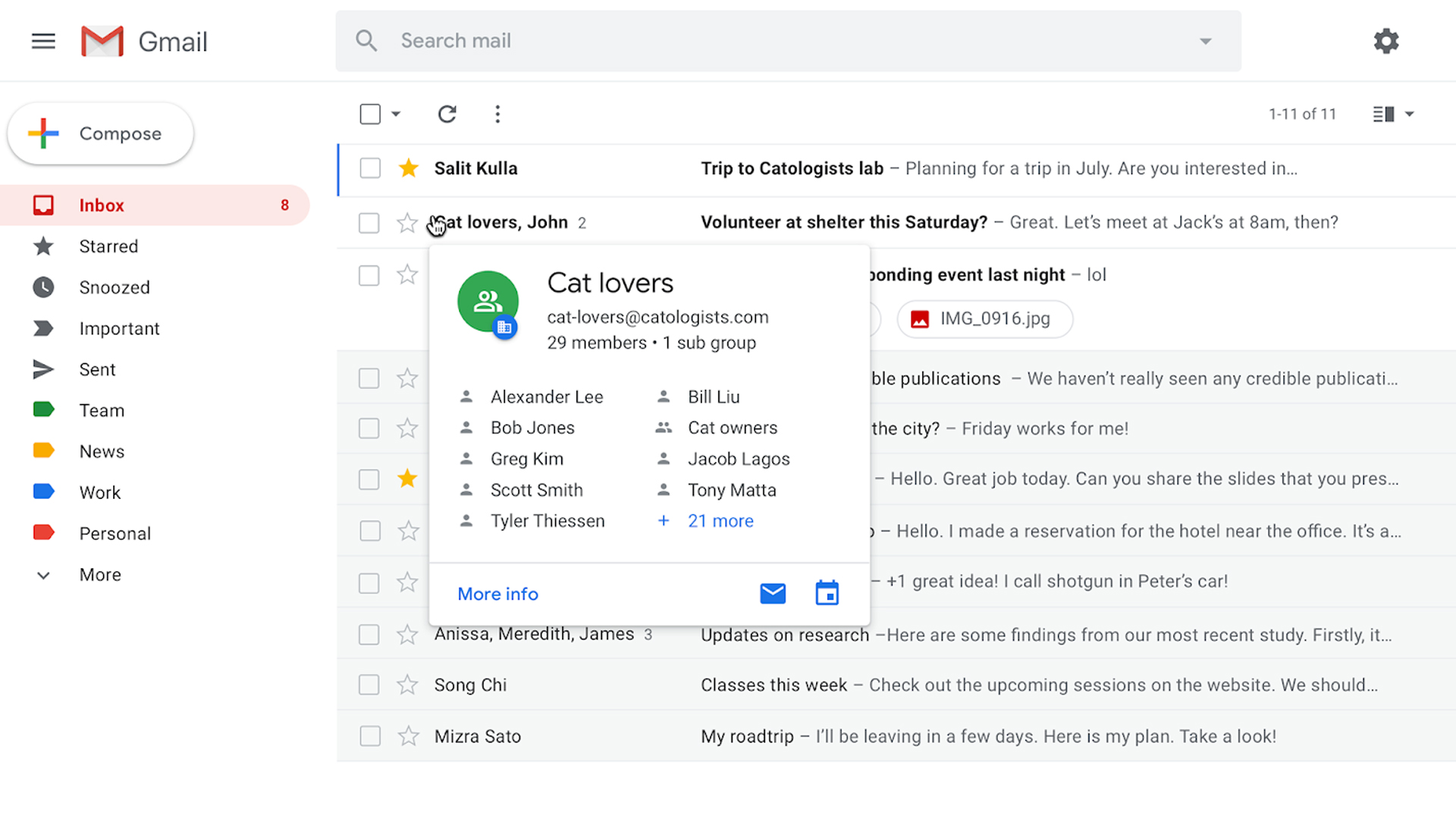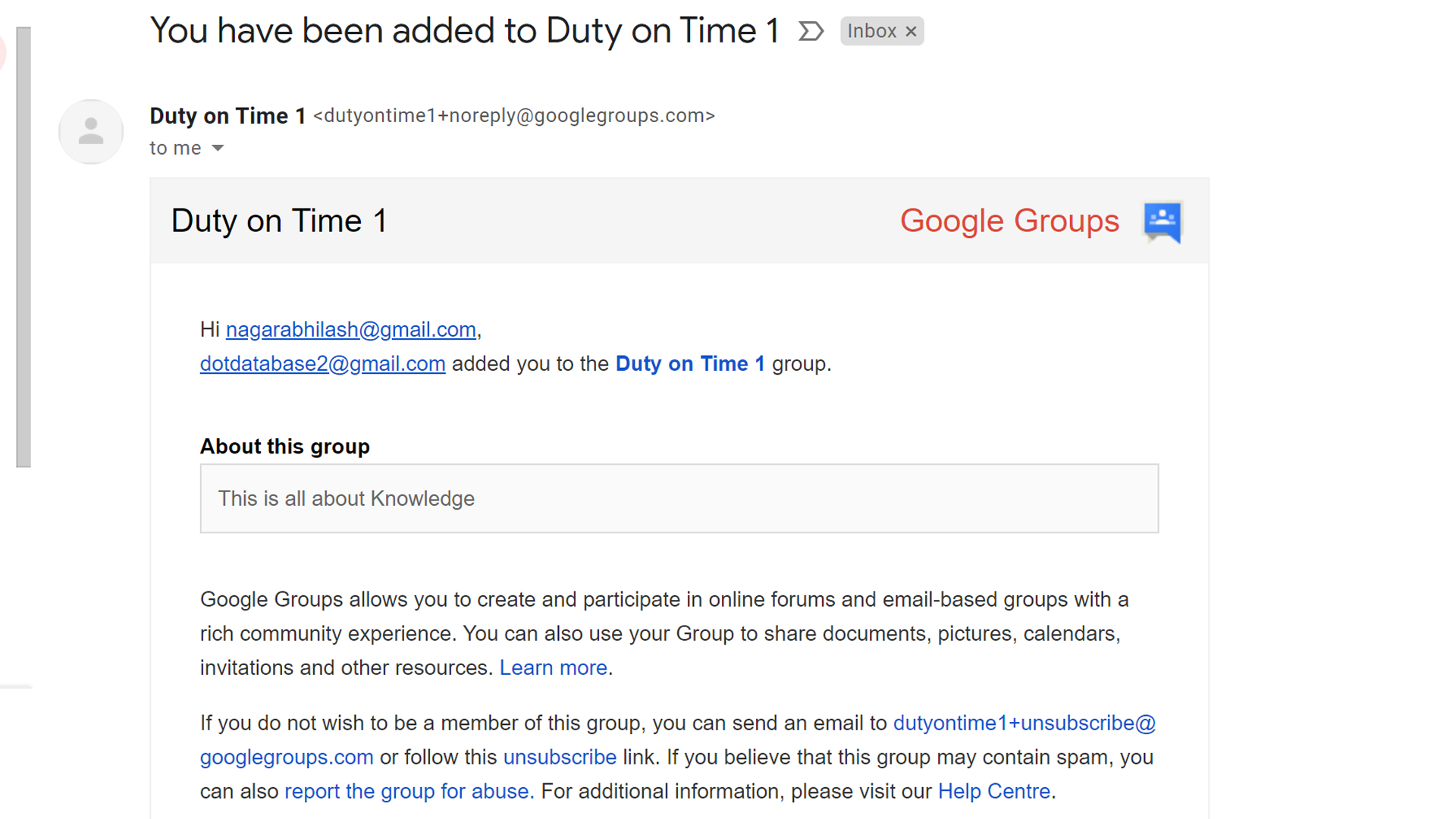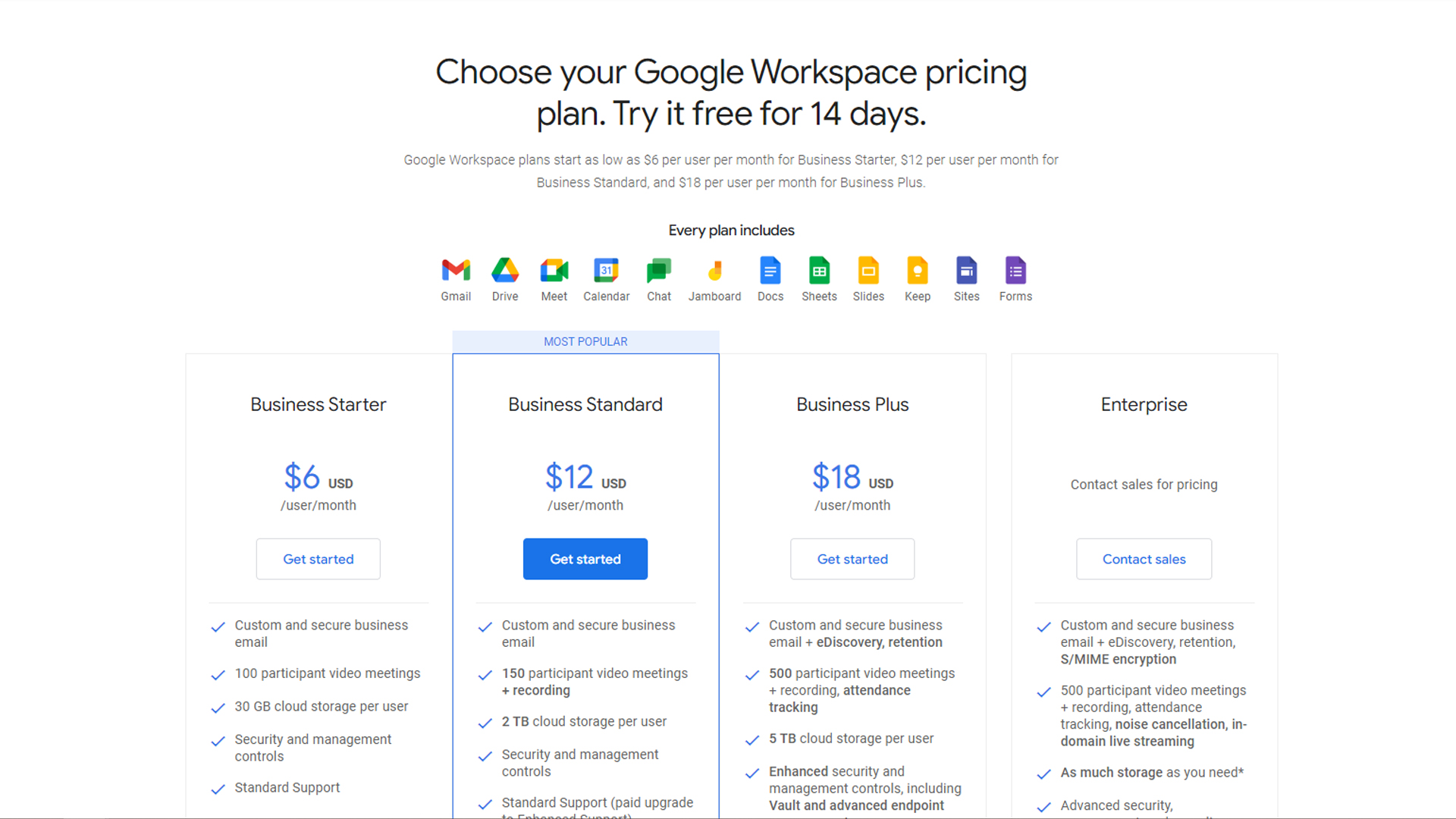What is Google Groups?
We explore Google Groups, looking into its applications for individuals and businesses, and its connections to Usenet


What is Google Groups?
Google Groups is a Google product with both individual and business uses. Businesses can use Google Groups to collaborate and communicate across their organisation. Individuals can use Google Groups as a discussion forum, and to search, read, and interact with information originally posted on Usenet.
Usenet is a collection of forums known as “newsgroups” that was created in the early days of the internet. Google Groups is just one way to access Usenet newsgroups. For more great options, see our detailed guide to the best Usenet providers.
What does Google Groups do?

Google Groups behaves slightly differently depending on if it’s used in a business setting as part of Google Workplace, or if it’s used by individuals.
Google Groups for individuals
For individuals, Google Groups is mostly used as a research and discussion forum, based on an old internet system called Usenet, an early internet technology launched in 1980.
Usenet is made up of a hierarchy of newsgroups, with each newsgroup dedicated to discussions around particular niches and topics like politics, sports, entertainment, or news. Multiple people can create and contribute to conversations around specific topics. Group members can choose to receive emails for each reply to conversations within the group, or as a daily digest.
Newsgroups and their posts are still visible and usable through Google Groups. Although Usenet is an old technology, some Usenet newsgroups remain active, with conversations happening on a regular basis.
Much of the functionality of the original Usenet has been updated and improved upon through modern internet forum software and social media like Reddit and Facebook Groups. Despite this, Usenet and Google Groups contain a great deal of original and historic information that continues to prove interesting and useful to some modern users.
Get the ITPro daily newsletter
Sign up today and you will receive a free copy of our Future Focus 2025 report - the leading guidance on AI, cybersecurity and other IT challenges as per 700+ senior executives
Google Groups for Business
Google Groups for Business is part of Google Workspace, Google’s suite of productivity products for businesses that include Gmail, Docs, Calendar, Meet, Chat, Sheets, and similar. As part of Workspace, Google Groups provides several helpful features for business users:
- Create email and distribution lists: Google Groups allows you to create lists for sending emails to people within your organisation
- Invite group members to meetings: You can send out and manage meeting invites for all group members
- Share content with group members: You can share documents, videos, calendars, and other media across your group membership
- Set up and use a collaborative inbox: You can use a team inbox to receive, manage, and respond to email
- Create and contribute to group conversations: You can share and add to information and discussions across group memberships
- Dynamically manage group membership: Certain users can automatically add and remove people from specific groups depending on specific criteria
How individuals and businesses can use Google Groups

How you use Google Groups will depend on if you’re using it as an individual to access Usenet newsgroups and posts, or as a business for managing communications in your organisation.
Individuals can research old Usenet posts and newsgroups
Google Groups provides individuals with access to Usenet newsgroups. You can use these newsgroups to research older discussion topics, split across eight main hierarchies: comp, news, sci, rec, soc, talk, misc, and alt. Due to Usenet’s former popularity, many of these newsgroups contain valuable historic discussions.
Individuals can contribute to public groups and Usenet conversations
Some Usenet newsgroups are still being actively used. Google Groups lets you join the conversation or start new discussions of your own.
Individuals can use Google Groups to create new groups
You can easily use Google Groups to create a new discussion forum, where people can post and contribute to conversations about your favourite topics.
Businesses and individuals can search for previous content
Google brings the full power of its search functionality to Google Groups. All users can search information either across all groups or within specific groups, using keywords or other queries. This is particularly helpful in businesses, as users can easily view previous discussions between team members and other employees.
Businesses and individuals can get email updates for conversations
Anyone who uses Google Groups can choose to get email updates. These are available in three formats:
- Email for each message: Messages are sent individually as they’re posted to the group
- Email digest: Up to 25 complete messages are combined into single emails and sent daily
- Email abridged: Summaries of up to 150 messages are combined into single emails and sent daily
Businesses can create new Google Groups for discussion and Q&A forums

Business users can set up groups based around teams, departments, projects, or anything else they want. These groups can function similarly to web forums, allowing for discussions around specific topics. Other groups can be useful resources for sharing information or posting questions and answers.
Businesses can set up mailing and distribution lists
If you want to send email to specific users, you can do that using Google Groups. It allows you to add specific email addresses to mailing lists, so you can easily share information with the whole group. Users can share messages to the group and mailing list without having to enter everyone’s email address separately.
Businesses can label discussions and groups for easy reference
Google Groups for Business features a labelling system allowing users to tag specific groups and discussions. This can be very helpful for categorising by team, project, business area, or other topics.
Businesses can set permissions on who owns and manages groups
Google Workspace administrators can set permissions for who owns and manages Google Groups. This can create good practices around group usage, limiting who can create or delete groups, add users, delete posts, etc.
Businesses can invite group members to events
Google Groups integrates with other Google services like Gmail and Google Calendar. This makes it easy to invite everyone to group events, for example all-hands, departmental, or team meetings.
Businesses can share information from other Google Workspace apps
Google Groups integration isn’t limited to calendar events. Users can also share other Google products like Docs, Sheets, Slides, and Forms. This is extremely useful if you want to get feedback from everyone on a particular document, or gather information from departments or teams.
Businesses can create collaborative inboxes
Google Groups can be set up as collaborative inboxes. This allows multiple group members to manage and respond to conversations and other areas. Members of a collaborative inbox group can:
- Volunteer to respond to specific conversations themselves
- Make another group member responsible for responding to a conversation
- Mark conversations as complete, duplicate, or no action needed
- Search for conversations according to the resolution status or who it's assigned to
How much does Google Groups cost?

Google Groups is free for personal use. You don’t even need a Google account to view posts in public groups. You will need a Google account if you want to create or post to Google Groups: Google accounts are free.
Google Groups is available to businesses as part of Google Workspace, which also provides access to many other Google productivity apps. The cost for Google Workspace depends on the services and storage you need:
- Business Starter: £4.14 per user a month, access to all Google Workspace apps, 30GB storage per user, meetings with up to 100 participants, standard security controls
- Business Standard: £8.28 per user a month, access to all Google Workspace apps, 2TB storage per user, meetings with up to 150 participants, standard security controls
- Business Plus: £13.80 per user a month, access to all Google Workspace apps, 5TB storage per user, meetings with up to 500 participants, enhanced security controls
Enterprise pricing is available for larger businesses.
Google Groups Usenet FAQs
Below, we've answered a series of frequently-asked questions relating to Google Groups.
Can I search and access Usenet newsgroups through Google Groups?
Yes, Google Groups has a complete archive of Usenet newsgroup posts. through Google Groups?
Can I contribute to Usenet newsgroups through Google Groups?
Yes, you can create and respond to newsgroup conversations through Google Groups provided you have permission, and the newsgroup allows for new conversations. Please note that many of the older Usenet newsgroups are archived, and may not allow for new posts or responses.
Do I need to pay to access Usenet newsgroups through Google Groups?
No, it’s free for individuals to read and contribute to Usenet groups and discussions.
Is Google Groups the only way to access and contribute to Usenet newsgroups?
No, you can access newsgroups through various Usenet services. Discover our recommendations for the best Usenet providers.
Main takeaways for Google Groups
Google Groups provides different functions and features depending on if you’re an individual or a business user. For individuals, it provides a fast, easy, and accessible way to search, access, and contribute to Usenet newsgroups—one of the original uses of the internet.
For businesses, Google Groups is a great option for sending out messages, managing communications, promoting collaboration, and sharing documents and files.
Further reading on Usenet
Learn how to download from Usenet, if you're interested in downloading files from the platform. It's also worth learning about Google Groups, another modern method for accessing Usenet; and take a look at our other reviews of top Usenet providers, including Eweka, EasyNews, UsenetServer, and Giganews.
One modern way to access some of Usenet is via Google Groups, while it's worth establishing which of the best Usenet newsgroup readers you'd want to use. Once you're all set up, learn how to download from Usenet, as well as how to access Usenet for free.
Paul is a highly experienced professional writer who creates extensively researched, expert, in-depth guides across business, finance, and technology.
Boasting over 20 years of business experience working across large corporations, Paul started his own business in 2006. This gives him a unique, first-hand understanding of the challenges businesses and entrepreneurs face.
Paul loves the challenge of taking complex subjects and breaking them down so they are easily understood. He specializes in creating content spanning a variety of formats, including website copy, blogs, knowledge bases, white papers, support guides, tutorials, and in-depth articles.